The Gender Divide: Differences Between Men and Women With MS
Multiple sclerosis (MS), like many other autoimmune conditions, is much more common in women than in men. But many men live with MS, and they tend to experience a more aggressive disease course compared to women.
We wanted to dig into the results of our 2019 Multiple Sclerosis In America Survey to see other differences between how self-identified men and women experience life with MS. In total, 4,965 women with MS completed the survey along with 939 men with MS.
MS misdiagnosis
Previous years’ survey results showed us that misdiagnosis is common in the MS community. MS symptoms can mimic those of several other conditions, so it can sometimes take time to get the correct diagnosis. This year, our survey found that women are actually more likely to be misdiagnosed at first before receiving their MS diagnosis.
MS progression
Relapsing-remitting MS (RRMS) is the most common type of MS. But women are much more likely than men to live with RRMS. Men are more often diagnosed with progressive stages of MS, like secondary-progressive MS and primary-progressive MS.
MS and other health conditions
MS is often just the tip of the iceberg for those living with multiple chronic health conditions. In particular, conditions like migraine, chronic pain, and fibromyalgia (among others) are more common in women with MS compared to men with MS.
Common MS symptoms
Both men and women experience a variety of MS symptoms on a daily, weekly, or monthly basis. But there were some differences in which symptoms were more commonly experienced by men who completed the survey.
Strength and optimism in the face of MS
Life with MS can be extremely challenging, and adapting to new limitations and lifestyle changes is not easy for anyone. Many women with MS reported trying to approach their “new normal” with a hopeful outlook.
Honesty and in-person support
It can be hard to be open about the true impact of MS on daily life. Many people avoid “burdening” their loved ones with the reality of how they are feeling. Men who completed the survey were more open about their symptoms and more likely to reach out for in-person support compared to women.
We want to say a huge thank you to everyone in the MS community who took the time to share details about their life with MS. Living with MS is a different experience for each and every person. We wanted to highlight some of the main differences we noticed between men and women who responded to our survey. Did any of these ring true for you?
The 2019 Multiple Sclerosis In America Survey was conducted online from April 2019 through June 2019. Of the 6,034 people who completed the survey, 5,911 were people who have been diagnosed with MS and 123 were caregivers of people with MS.

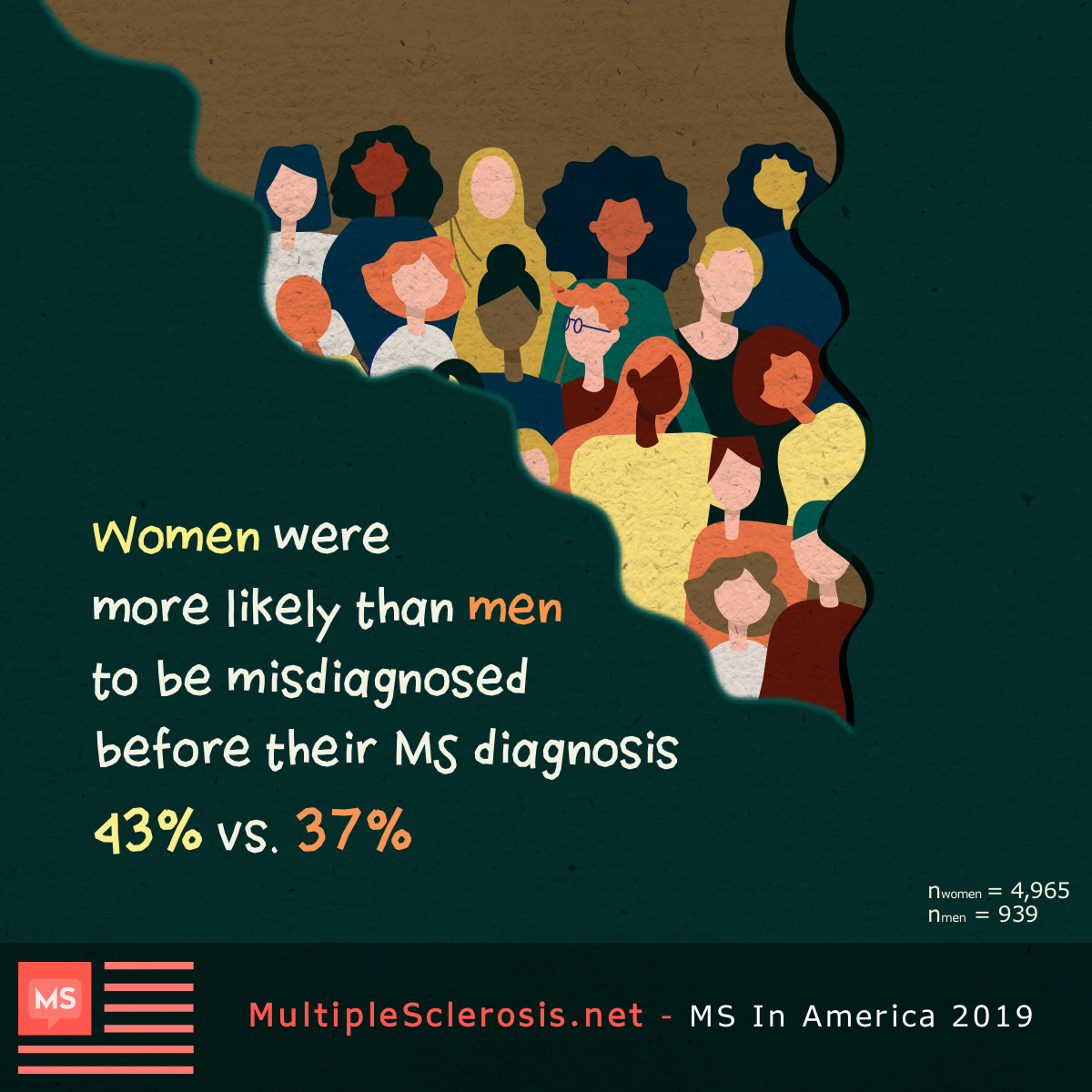
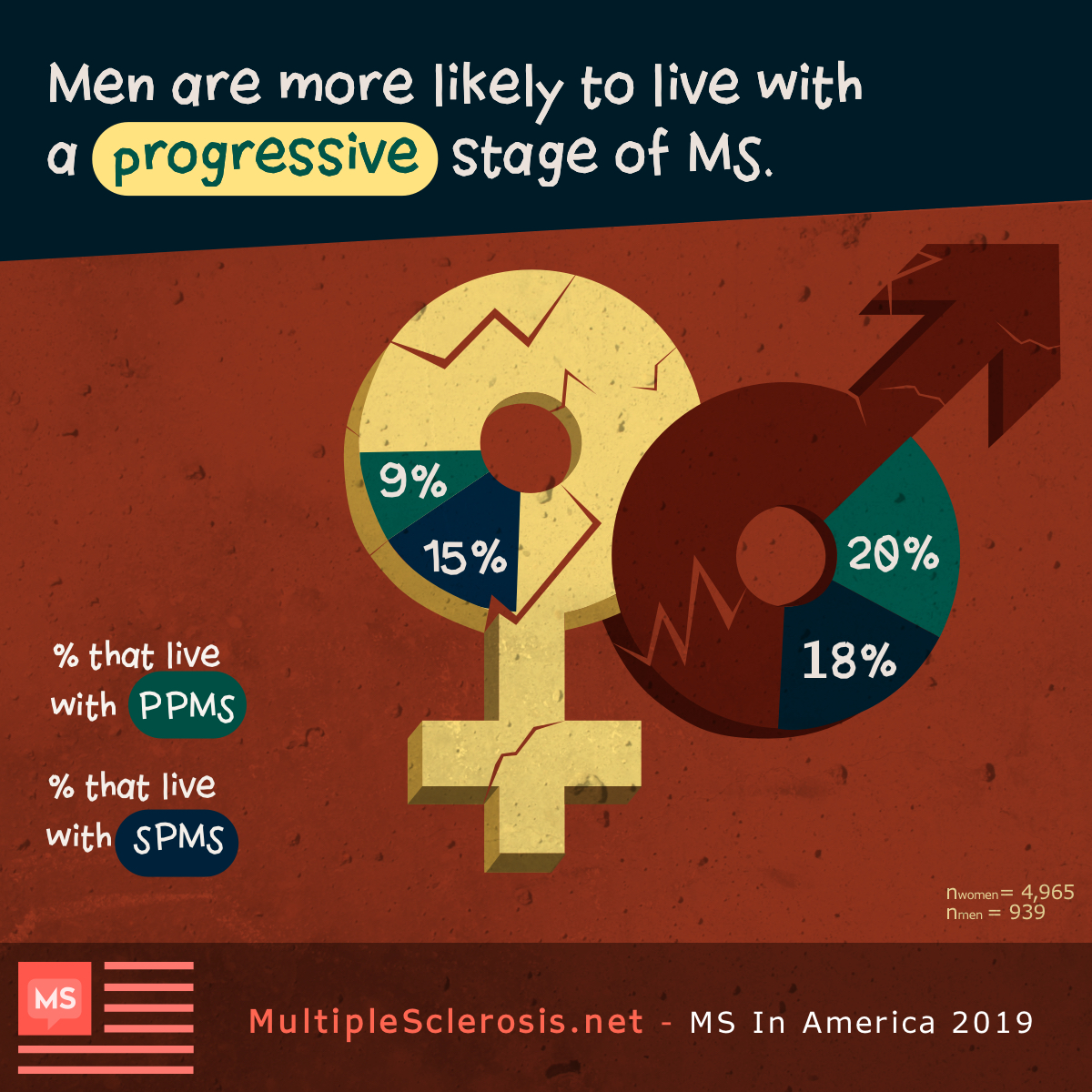
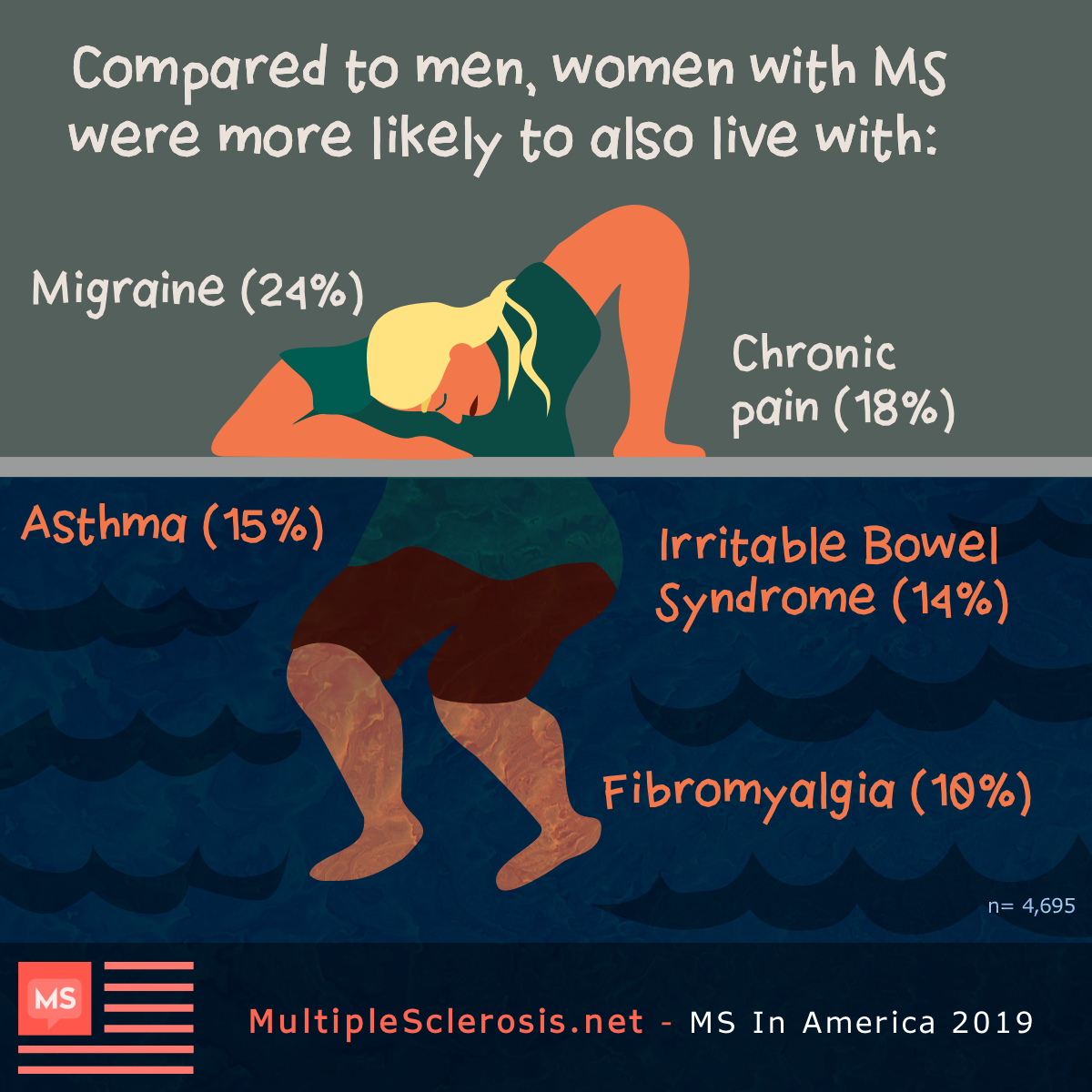
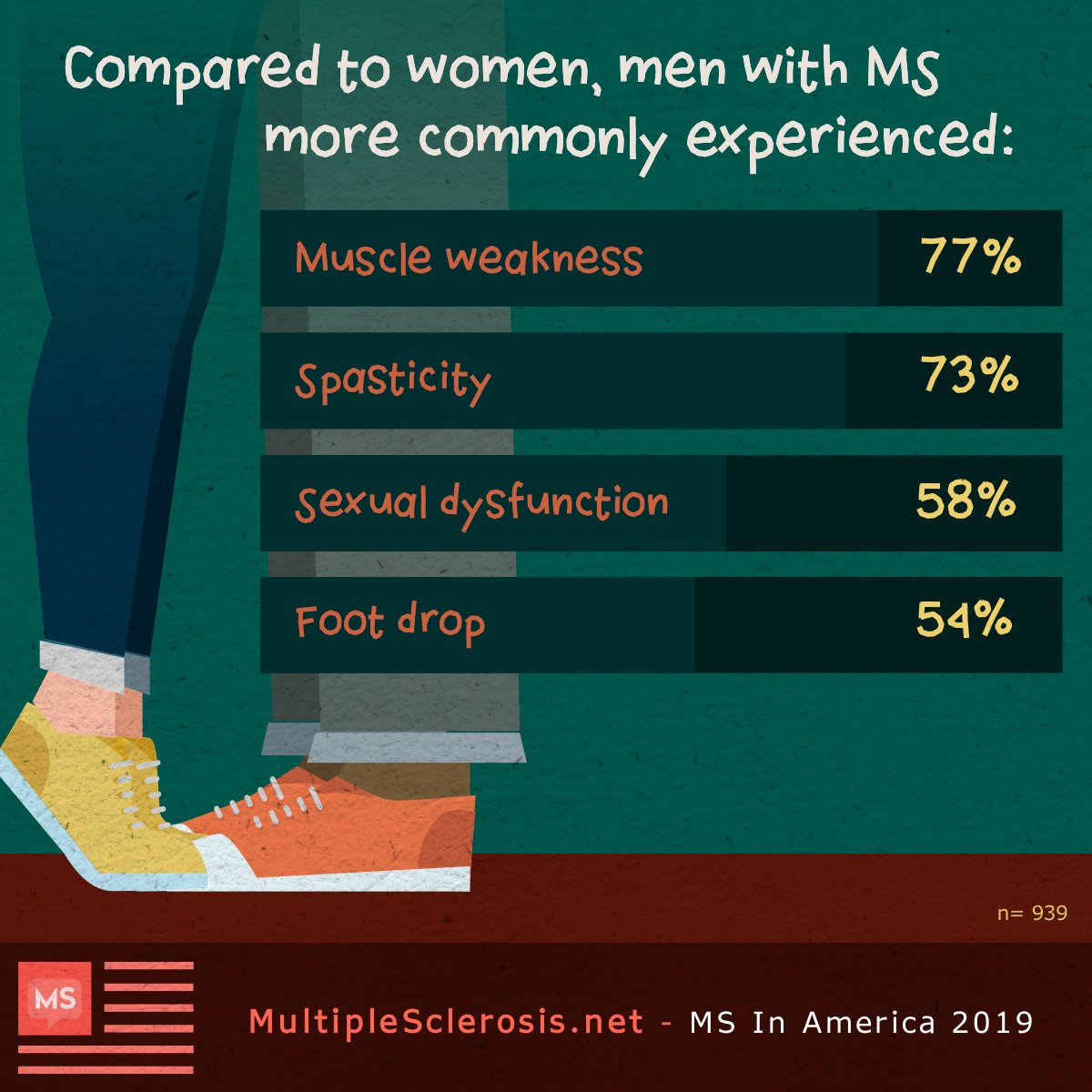
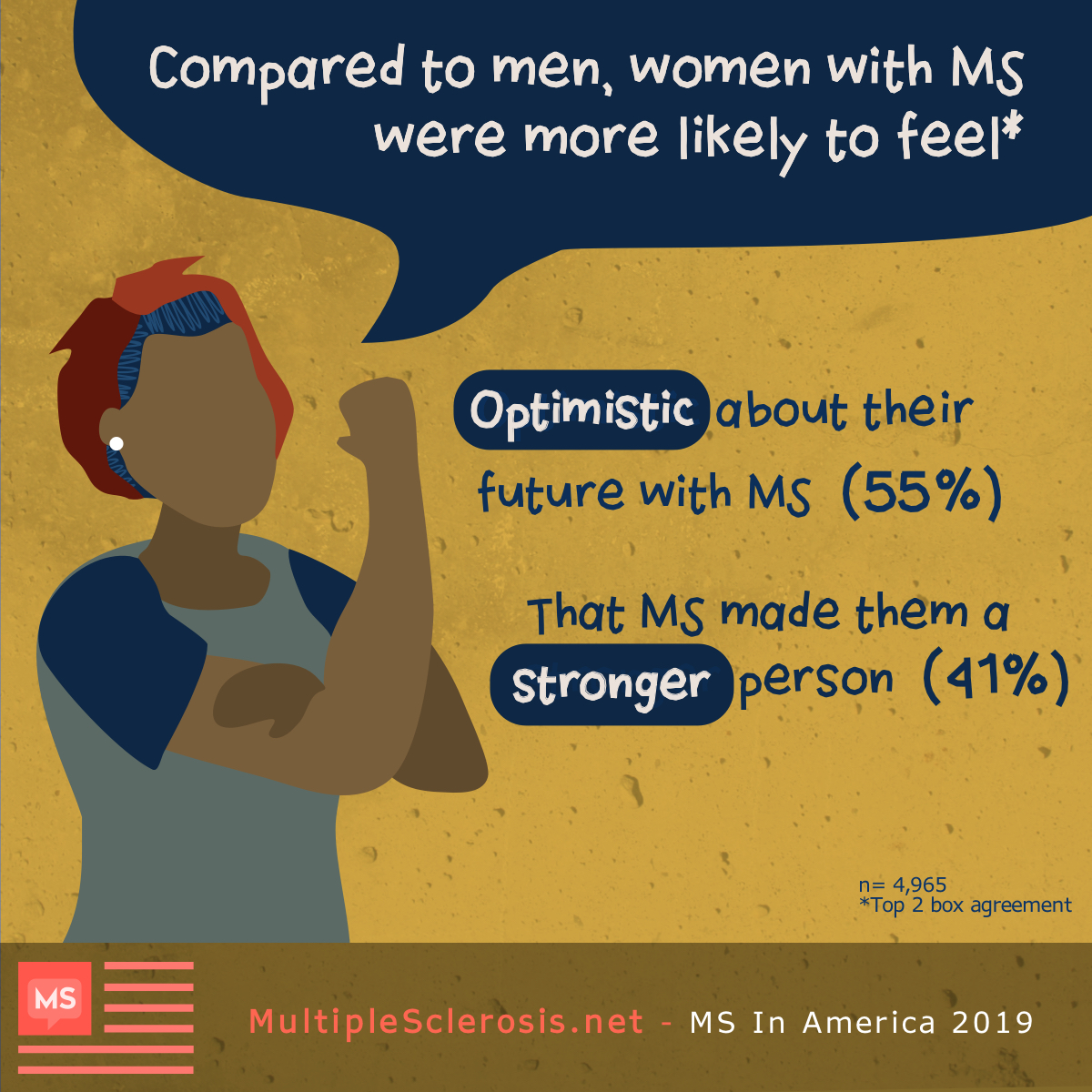
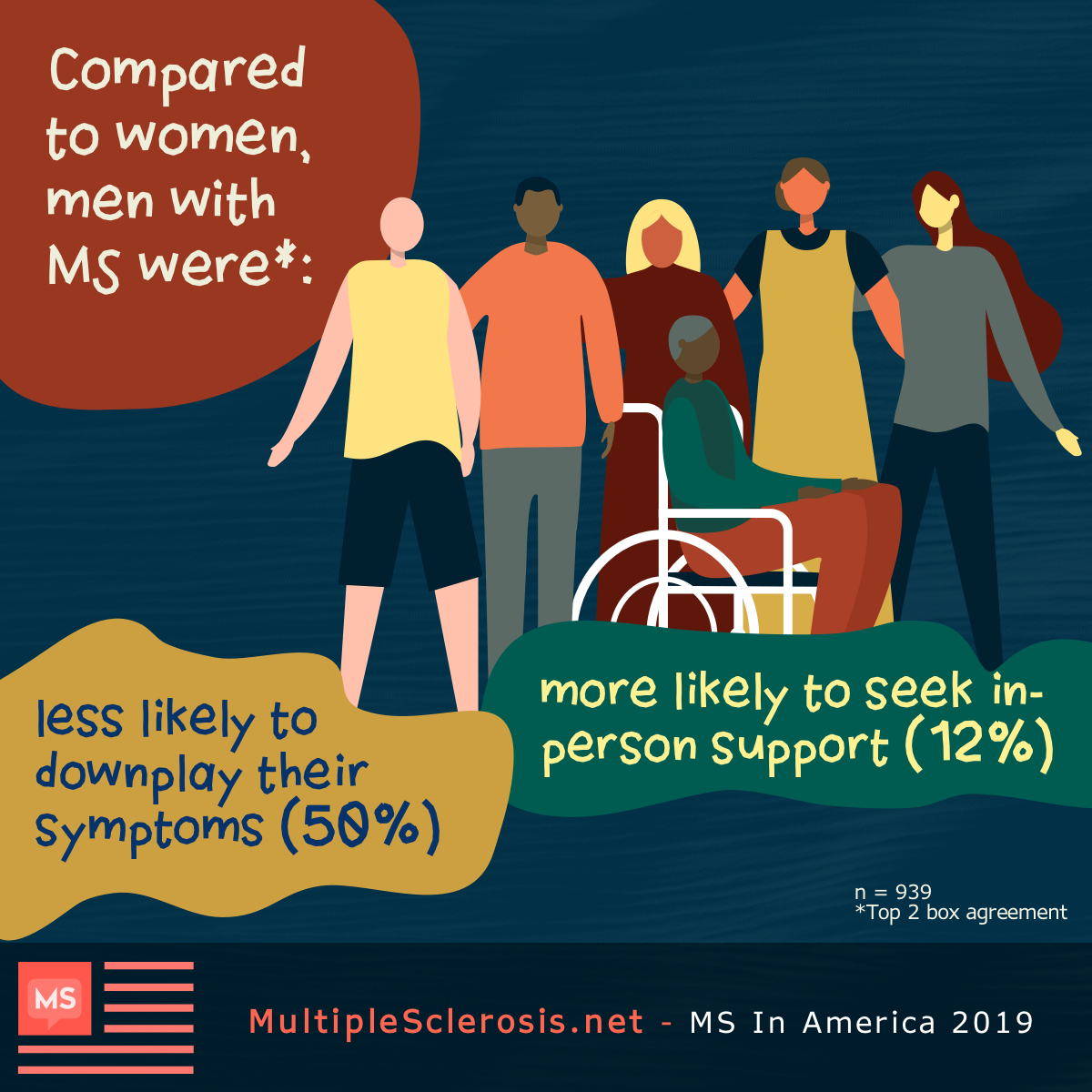
Join the conversation